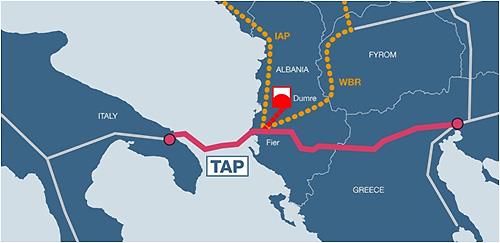
Πρόσφατα ο υπουργός Παραγωγικής Ανασυγκρότησης, Ενέργειας και Περιβάλλοντος κ. Παναγιώτης Λαφαζάνης επισκέφτηκε το Αζερμπαϊτζάν προκειμένου να συμμετάσχει στην πρώτη συνάντηση του Συμβουλευτικού Συμβουλίου για τον Νότιο Διάδρομο (South Corridor). Ως γνωστό ο Νότιος Διάδρομος ο οποίος θα αποτελείται από το σύστημα αγωγών TANAP- TAP, όταν η κατασκευή του ολοκληρωθεί το 2019/2020 πρόκειται να μεταφέρει περιορισμένες ποσότητες φυσικού αερίου (10.0 BCM σε πρώτη φάση) από το Αζέρικο τμήμα της Κασπίας προς την Ευρώπη μέσω Τουρκίας, Ελλάδος και Αλβανίας. Η Ελλάδα είναι μία από τις λίγες Ευρωπαϊκές χώρες η οποία από την αρχή υποστήριξε ανεπιφύλακτα και με συνέπεια την ανάγκη κατασκευής του αγωγού TAP, έναντι του ανταγωνιστικού αγωγού Nabucco, το σχέδιο του οποίου και καταργήθηκε μετά την επενδυτική απόφαση για τον TAP τον Ιούνιο του 2013.


